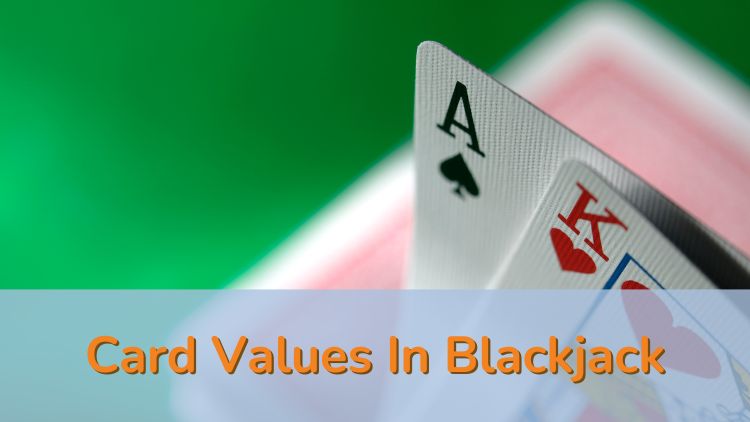
Blackjack is a popular card game in online and land-based casinos. It's straightforward once you understand the basics, the most important part of which is a good understanding of card values.
In Blackjack, each card has a point value. Understanding these values is key to playing successfully, given the objective is to end up with a hand with a total closer to 21 than the dealer without going over.
This post will guide you through how each card is valued so that you can start to build your foundational knowledge of this game and see that it isn't as complex as you may think.
Card Values In Blackjack
In Blackjack, each card has a specific value. Number cards from 2 to 10 are worth their face value, meaning a 2 is worth 2 points, a 3 is worth 3 points, and so on.
Face cards, which include Jacks, Queens, and Kings, are all worth 10 points each. These are strong cards to have in your hand as they can help you reach 21 points quickly.
The Ace is a special card. It can be worth either 1 point or 11 points. You can choose which value helps you more as the game goes on. We'll discuss this more in the next section.
Remember, the goal in Blackjack is to get as close to 21 points as possible without going over. So, although the face cards can be helpful if you get them in the initial draw, they can also cause you to go bust if you hit on a hand value of 12 or higher.
Understanding these simple rules about card values can help you get to grips with Blackjack and start to build your confidence.
Is Ace 1 Or 11 In Blackjack?
In Blackjack, the Ace is a unique and flexible card.
As mentioned earlier, an Ace can count as either 1 point or 11 points. This flexibility makes it a powerful card.
How it is used depends on the hand it's in. If using an Ace as 11 points keeps your hand's total value at 21 or less, it counts as 11.
If counting it as 11 would make the total go over 21 (which is a bust), the Ace counts as 1 instead.
For example, if you have an Ace and a 7, you have either 8 points (1 + 7) or 18 points (11 + 7). If you were to stand with this hand, then you would finish with 18, but if you hit, the Ace would count as 1 if you receive a card worth 4 or more.
The value of the Ace will adjust to make the best possible hand within the rules. This adaptability is why the Ace is so valuable in Blackjack.
Blackjack Basic Strategy Explained
Blackjack basic strategy helps you make the best decisions, statistically speaking, based on your hand and the dealer's visible card.
Effectively using basic strategy can actually lower the house edge compared to playing with no strategy at all. The house edge in Blackjack is around 2-4%, but with basic strategy being implemented effectively, it can end up as low as 0.5-1%.
Let's take a closer look at the strategy.
First, always remember that your decisions are based on your hand and the dealer's upcard. If the dealer has a weak card (2 through 6), you should play differently than if they have a strong card (7 through Ace).
When to Hit:
-
Hit if your total is 8 or less
-
Hit if you have a soft 17 (Ace and 6)
-
Hit if your hand totals from 12 to 16, but the dealer shows 7 or higher
When to Stand:
-
Stand if your total is 17 or more
-
Stand on 12 to 16 if the dealer has a weak card (2 through 6)
When to Double Down:
-
Double down on 11, always
-
Double down on 10 if the dealer has 9 or less
-
Double down on 9 if the dealer shows 3 through 6
When to Split:
-
Always split Aces and 8s
-
Never split 5s and 10s
-
Split 2s, 3s, 6s, and 7s if the dealer has a 2 through 7 showing
This is just a quick summary of basic strategy for reference only. For a more detailed view, do your own research by looking for a basic strategy chart either online or in the casino (many casinos allow them and have them on the casino floor). Remember, although basic strategy can reduce the house edge, it can never fully remove it. There will always be an element of chance to Blackjack, which means that wins can never be guaranteed.
